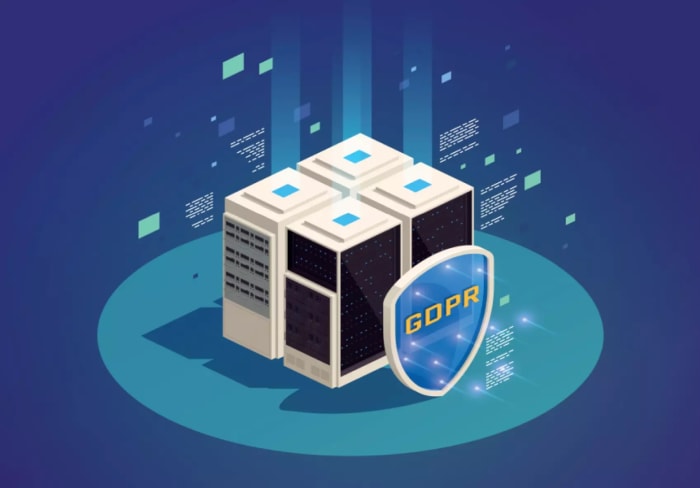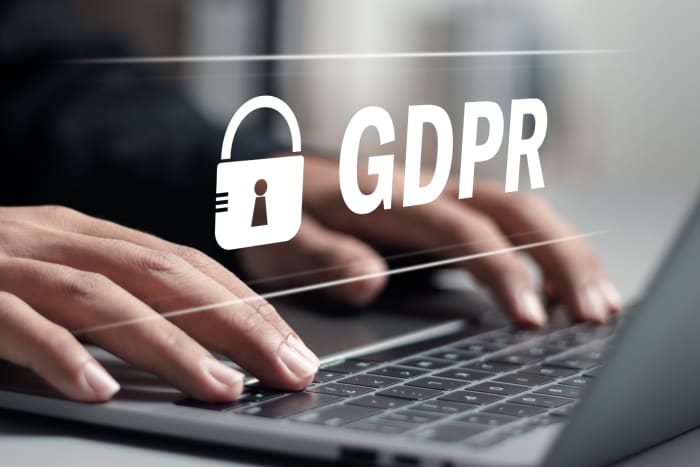GDPR Compliance
Consulting Services
The GDPR or General Data Protection Regulation is a comprehensive set of privacy laws and rules governing the European Union.
As a private organisation, it’s your responsibility to ensure that your website and other channels comply with the GDPR rules to operate legally within the EU.
Go Wombat’s GDPR compliance consulting services provide the technical framework required to abide by Europe’s privacy regulations.
Our multi-functional team of legal experts, technology leaders, and specialisedspecialized developers creates a versatile setup that ensures GDPR compliance across your entire business.
Get in touch with our team and book a
consultation to find out how we can help.
Go Wombat GDPR services
Establishing and maintaining company-wide best practices is a team effort, and abiding to GDPR regulations is no exception.
We are here to ensure that all relevant data touchpoints in your business meet GDPR compliance.
Let’s take a closer look at the steps we take to create a safe data collection and management system.
Data mapping and discovery
Go Wombat starts by exploring your current data processes and developing records for data processing.
This is a GDPR requirement, but it’s also important to note that this step provides essential information that’s used to ensure compliance consistently.
Our process works as follows.
- Perform a GAP analysis to identify weak points
- Create assets based on their data type and other characteristics
- Perform an assets mapping where the data is stored
- Finally, move onto the data mapping and risk assessment stage
Privacy training for staff
The GDPR experts at Go Wombat create a personalised training program for your internal team to educate them about the requirements of the General Data Protection Regulation.
We also deliver this training first-hand and answer any questions, concerns, or doubts that your team may have. You’ll also have training materials you can store and use to upskill incoming employees about your internal practices.
Notice and consent
Operational Our team carefully reviews your existing data policy, if you have one already, to identify the areas that need to be improved. If necessary, we’ll put together a draft for a new version and ensure that this one complies fully with the GDPR.
As a part of this process, we analyse the different data collection points used by your organisation. Then, we’ll find the best ways to optimise consent management and improve the quality of the consent being collected.
Privacy rights
As part of our service, our GDPR specialists analyse every information system that’s included in the scope of the General Data Protection Regulation. We take the time to identify cases where data subject rights are not being properly supported.
We identify compliance gaps in areas like:
- Right to be forgotten
- Right to access, correct, and update the personal data collected
- Right to restrict processing
Once we identify these, our team develops real-world solutions that minimise compliance risk while still delivering the results you need to see.
GDPR website compliance and documentation
Having the right documentation in place is essential in order to meet GDPR compliance.
Our team can prepare five primary documents required for your website to ensure it’s following the rules set forth in the GDPR. These documents are terms and conditions, privacy policy, cookie policy, privacy notice, and consent forms.
Data protection impact assessment (DPIA)
Data protection impact assessment (DPIA) A Data Protection Impact Assessment (DPIA) is a process designed to identify and mitigate potential risks arising from the processing of personal data.
The Go Wombat GDPR compliance team evaluates your digital business processes in order to evaluate and address any risks. Our team’s specialty is to bring an innovative approach, develop creative solutions, and set up an effective internal assessment process.
If you collect, process, or store data that falls within the domain of the GDPR our team can help you determine if you need to conduct DPIAs and guide you from there.
What is GDPR?
The General Data Protection Regulation (GDPR) is intended to harmonise data protection laws throughout the European Union (EU) by applying a single law. This law is binding throughout each member state, and also applies to all enterprises, regardless of their location, processing data of EU citizens.
GDPR protects any information that can be linked to or used to identify an individual. The information can be structured or unstructured and can be transferred in any medium, including online, offline, or backup storage.
To ensure regulatory compliance, organisations intending to process EU residents’ personal data will need to make major changes to their policies, processes, and contracts. Besides any documentation changes, companies will need to revise their technical and organisational measures.
Sometimes such changes can be more complex and significant than expected, prompting the advice of professional GDPR compliance consultants.
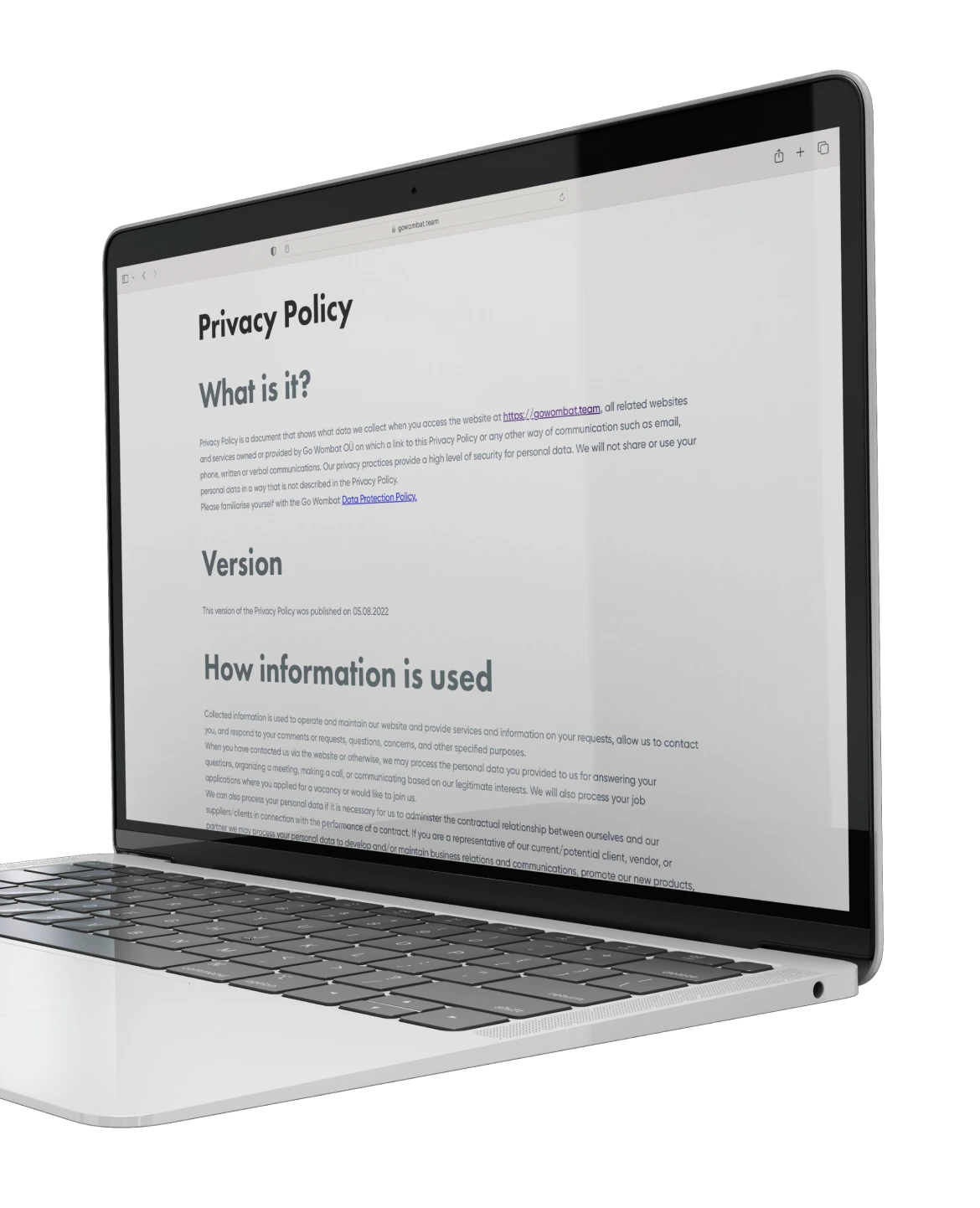
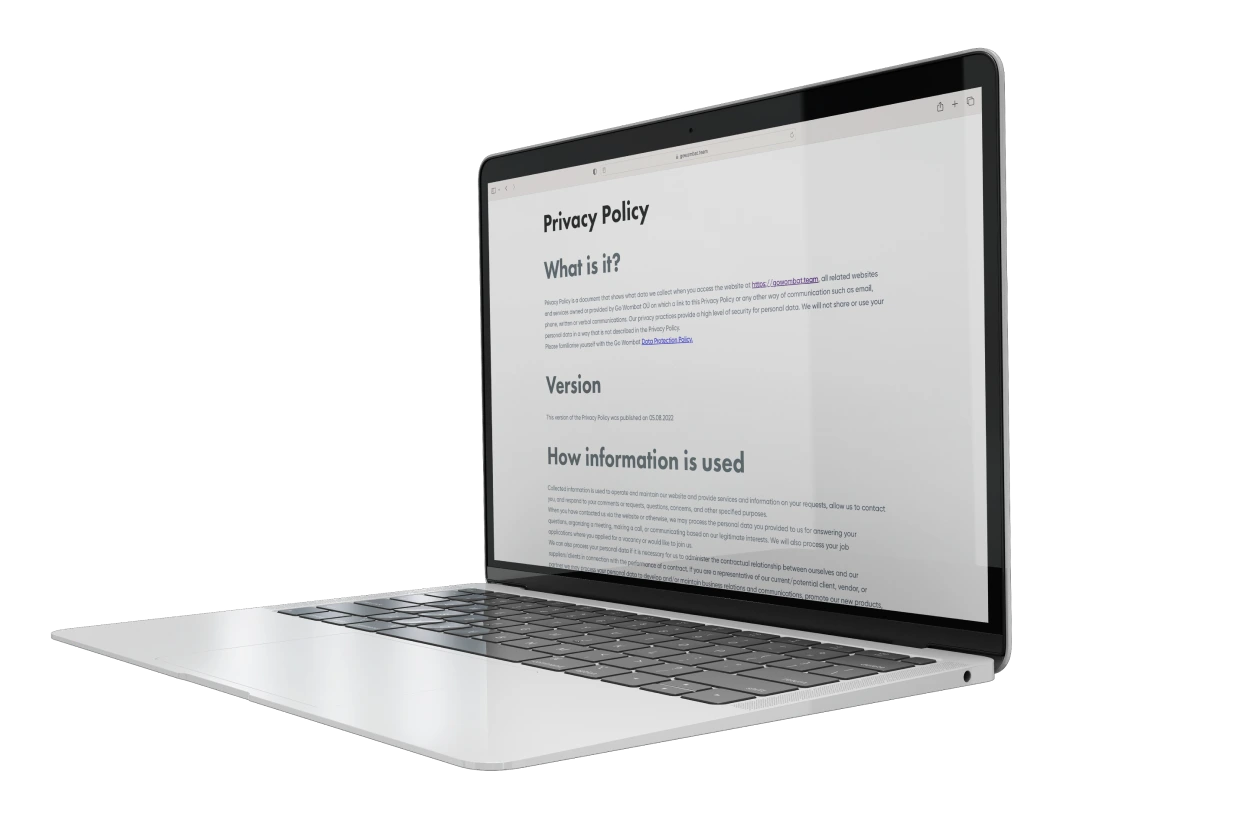
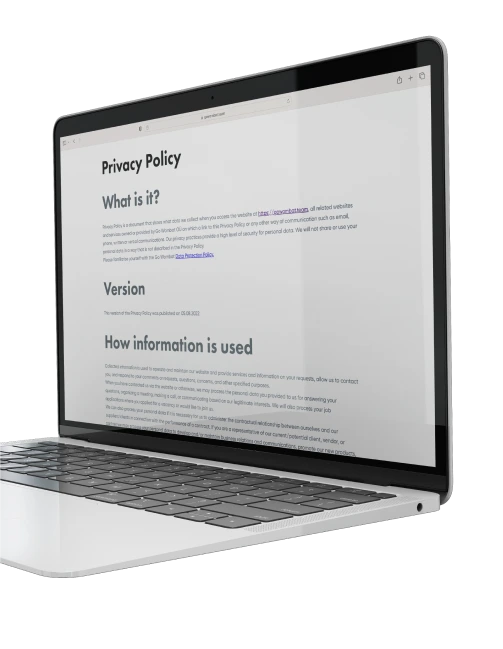
Does your organisation have policies, processes, and contracts in place and in line with the GDPR? If not, Go Wombat can help.
Talk to one of our consultantsHow Go Wombat can help with your compliance
Our team of experienced data management and protection engineers can help your organisation with best-practice solutions, from evaluation to implementation.
Whether you are a small or medium-sized enterprise, we can tailor our GDPR compliance consulting services to provide a best-fit GDPR framework.
Some of the methods we implement to ensure that all of your information systems are following GDPR compliance include:
Our team of GDPR experts follow the principles of “data protection by design and by default” which are set forth directly by the EU.
Simply put, data protection is something that our team keeps in mind at all times when creating GDPR compliant systems.
Some of the technical measures we take include implementing system-wide encryption and promoting best practices, like deleting records as soon as they are no longer needed.
Most productivity and business tools today are compatible with end-to-end encryption.
Our team encrypts your email, messaging, notes, and cloud tools as well as other resources in order to pseudomize information whenever possible. This is in line with GDPR requirements.
Operational security is a legitimate weak point that can be easily exploited by cybercriminals. This is the reason why the GDPR requires organisations to create a strong security policy that results in a team with strong digital safety knowledge.
As we mentioned earlier, our team assesses your existing security and privacy policy to determine the areas that need to be improved. If you don’t have one already, we’ll proceed to drafting a guidance document that ensures your compliance with GDPR laws.
Our guide includes best practices for areas like:
- Email security
- Passwords Multifactor authentication
- Device encryption and VPN usage
Vadym Palii
InfoSec Consultant/ DPO
Certifications


Web Application Security
Our background of GDPR compliance
Go Wombat has many years of experience in data-oriented web and mobile application development.
We maintain many different IT systems, not only those created in-house. We restore broken systems, fix the consequences of hacking, and predict service failures.
As GDPR compliance consultants, we have gained extensive experience in data protection, cybersecurity, data governance, and analytics.
Our GDPR
compliance solutions
We help transform all business processes and IT systems to meet and maintain compliance with GDPR requirements. Our services are based on expert advice, not on form wizards and checklists. We understand that each process and project is different.
SME GDPR compliance consultancy
Regardless of the levels of regulatory protection provided by governments, there will always be those that want to use personal information unlawfully. Being governed by this regulation provides a sense of security within a business for customers.
An increasingly important aspect of business today is personal data. There is hardly any facet of life that does not require people to hand over some piece of information.
This information can be either physical or digital and can be used to track movements or actions. Companies both big and small are governed by this regulation but they still attempt to gather data as much as possible.
There are different approaches depending on the size of the organisation and the complexity of compliance. This is where the informed opinion and guidance of professional compliance consultants are needed.
Make Go Wombat your GDPR compliance consultants
Over eight years of cybersecurity and data privacy expertise
An in-depth understanding of the GDPR laws and what they mean
Expert knowledge of cybersecurity and privacy frameworks
Our GDPR consultants are qualified and experienced creating robust data privacy systems and implementing best practices in their management. Plus, when you partner with Go Wombat, you will have access to a dedicated account manager throughout the duration of your project.
GDPR compliance consulting services FAQs
There are six key principles of the GDPR aimed at protecting the individual. These include the following topics: the right to access, the right to be forgotten, data portability,bBreach notification, privacy by design, and a data protection officer.
If your business needs to collect, monitor, or otherwise process the personal data of citizens belonging to the EUthen yes, you need to comply with GDPR, regardless of our location.
Personal data contains different information that together identifies a specific person. For example, name, surname, residential address, email ID, bank details, etc., can be considered personal data since they clearly identify a specific person.
The law applies to every organisation that handles the personal data of an EU citizen regardless of its location. GDPR applies to all the organisations that collect, monitor, or otherwise process the personal data of citizens belonging to the EU.
InfoSec is a process that aims to protect processed information in automated systems and prevent or impede the occurrence of possible threats to the system, thus mitigating potential profit loss. InfoSec results in a status where the information is considered secure according to implemented policies.
